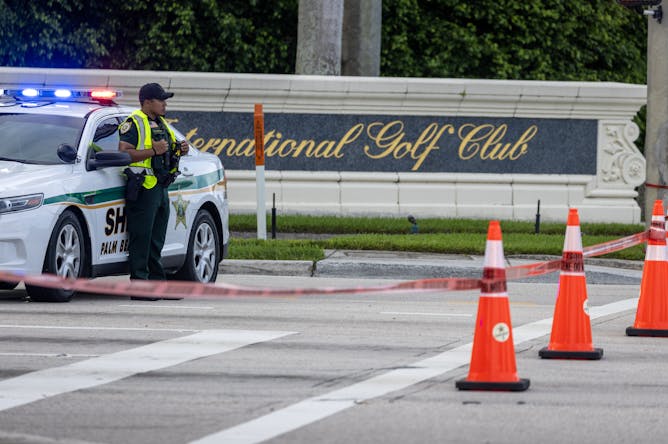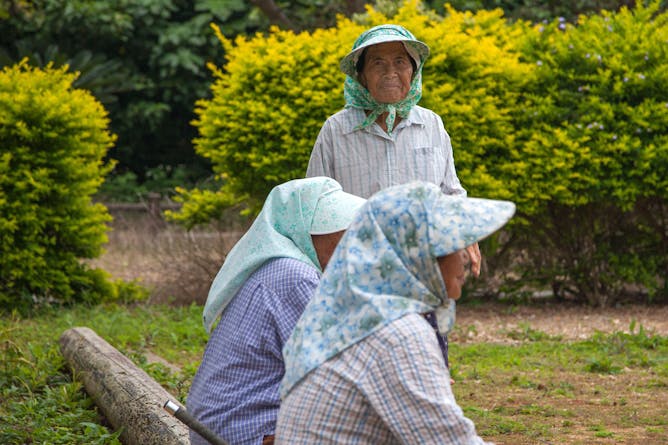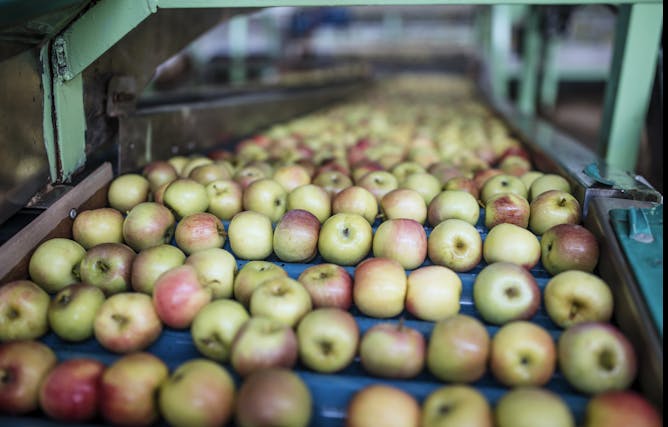|
Getting into a taxi with a stranger at 11pm could have been an awkward experience. Especially when the journey ahead was due to take one-and-a-half hours. Fortunately, when I arrived at Pisa airport last week and jumped into a car to be driven to Siena, sitting next to me was Raja Chakir, a researcher in environmental economics at Paris Saclay University and a director of research at INRAE, France’s national research institute for agriculture, food and environment.
Inevitably, once we’d got beyond, “how was your flight? I hear you were delayed”, we quickly arrived at “so, what do you do and why does it bring you to a conference of the future of Europe?”. Fortunately, The Conversation provided instant common ground. Raja is a reader, but also a very content contributor. Just a couple of months ago, she published this article with colleagues from INRAE and one of our French environment editors, Gabrielle Maréchaux.
Raja and I were both heading to the Siena Conference on the Future of Europe, hosted by the think tank Vision, along with the European University Institute and the University of Siena, and the Institute for European Policy Making at Bocconi University (a Conversation member). For more on the event, click here, and for some the best of this week’s content from across The Conversation, scroll down.
|

Andy Barron/AP/AAP
Rodney Tiffen, University of Sydney
The media mogul is trying to revoke the “irrevocable” trust, but it’s unlikely he’ll succeed.
|

Cristobal Herrera-Ulashkevich/EPA/AAP
Jared Mondschein, University of Sydney
Despite all the drama, the race for the White House remains remarkably close, with the polls shifting little in recent weeks.
|
|
|
-
Daniel J. Mallinson, Penn State
Pennsylvania’s delays in counting mail-in votes have not been fixed − creating an opportunity for Trump and his allies to cast doubt on the results again in 2024.
|
|

Saul Justin Newman, UCL
Saul Newman’s research suggests that we’re completely mistaken about how long humans live for.
|

Antoinette Paula Malan, Stellenbosch University; Letodi Luki Mathulwe, Stellenbosch University; Nomakholwa Faith Stokwe, Stellenbosch University
Six fungi species were tested and three were found fast and effective at infecting and destroying woolly apple aphids.
|
|
|
-
Danny Dorling, University of Oxford
Children are becoming poorer in the UK – more so than in other countries.
-
Olivier Moreillon, University of Johannesburg
After a messy break-up, Mangi loses his job and finds himself destitute in downtown Johannesburg. That’s where his transformation begins.
-
John Blaxland, Australian National University
In weighing up Australia’s interests, we must look beyond the critiques. The geopolitical circumstances and new technological advances point to the need to stay the course.
-
Lynn Hilditch, Liverpool Hope University
Who was Lee Miller, the subject of Kate Winslet’s new biopic?
-
Giulia Champion, University of Southampton; Akshata Mehta, University of the Western Cape; Mia Strand, Nelson Mandela University
Marine art is an important form of storytelling. Visual, performance, sculptural and moving image arts have driven the evolution of marine sciences too.
|
|